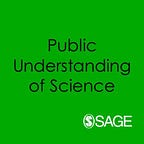Public Relations and Neoliberalism: The Language Practices of Knowledge Formation
Review by Kristian H. Nielsen
Concerns have been raised about Public Relations’ substantial influence on media and public opinion. The book contributes to this critique by drawing an explicit link between Public Relations practices and neoliberal notions of individual freedom of choice, as well as progress and prosperity through economic expansion.
This book adopts a sharply critical stance toward public relations (PR), framing it as a form of discourse synonymous with disinformation and deceptive messaging. It delineates the ideological connections between PR, the deliberate cultivation of uncertainty by industry lobbyists and scientific consultants, and neoliberalism — a doctrine underpinned by beliefs in market efficiency, deregulation, and an enlarged role for the private sector within the economy.
The text posits that the link between PR and neoliberalism lies in what is termed a “neonarrative,” comprised of numerous “plastic words”, such as communication, prosperity, freedom, development, and sustainability. This language, it suggests, imperils public discourse by constraining our collective imagination. Although these plastic words appear harmless and self-evident, they are capable of inflicting substantial harm on social and natural worlds. The PR-neoliberal neonarrative, according to the author, has been effective in producing an almost all-encompassing three-dimensional model of how to live, think, and behave.
One of the most compelling chapters for the readers of Public Understanding of Science is likely to be Chapter 4, which delves into the neonarrative concerning climate change and environmental issues. This narrative will resonate with many of the journal’s regular audience. The chapter scrutinises the tactics of climate change denialists who have intentionally eroded trust in climate scientists by casting doubt on their findings.
Diverging from scholars like Naomi Oreskes, who have identified specific scientists and major oil corporations as “merchants of doubt”, this section of the book investigates how “PR language practices” use plastic words such as “information” and “environment” to weave a neonarrative about climate change. It critiques the concept of ecological or environmental PR, which has been used not only to enable public relations practitioners to foster a comprehension of environmental issues in collaboration with businesses and organisations but also to subvert the claims made by climate activists.
The focus on PR’s role concerning environmental matters indicates, the chapter argues, that neoliberal thinking has permeated the entire discourse on pollution and climate change. This has led to the dismissal of the environmental crisis narrative and reinforced the perception of nature as a commodity to be controlled and exploited.
In an era where neoliberalism continues to be a driving force in governance and communication, the book’s arguments are particularly resonant. PR has, for some segments of the public and within certain scholarly debates, developed a tarnished reputation. Given its prevalent role in marketing, advertising, and political campaigning, PR is often seen as a contributing factor to society’s commercialisation, furthering consumerist values at the expense of more communal or environmental considerations.
PR is commonly linked with “spin” — the act of slanting information to a specific agenda. Concerns have been raised about PR’s substantial influence on media and public opinion. The book contributes to this critique by drawing an explicit link between PR practices and neoliberal notions of individual freedom of choice, as well as progress and prosperity through economic expansion. It further challenges the erosion of meaning in key societal debates, addressing not just climate change and environmental issues, but also migration (in Chapter 5) and the COVID-19 pandemic (in Chapter 6).
Despite its broad appeal, the book exhibits several deficiencies. First, it reiterates the connection between neoliberalism and PR excessively. Second, the book’s examination of how plastic words compromise the richness and precision of language — resulting in communication that is less impactful and less adept at capturing the complexities of human experience — is often confined to a narrow selection of texts. This selection fails to encompass the comprehensive nature of plasticity, which is the inherent emptiness of such words, their loaded positive and progressive connotations across various contexts, and their seamless migration from one discourse to another, requiring little or no modification in their usage.
Third, the text largely addresses discourse tangentially related to actual PR practice within organisations, instead opting to analyse material stemming from non-PR spheres, such as conservative political commentary in the media. Furthermore, the book does not differentiate PR practices according to Grunig’s well-established four models of PR: publicity, public information, two-way asymmetric, and two-way symmetric. It would be reasonable to expect that these distinct approaches to PR might influence in different ways the interplay between neoliberalism and PR, as well as the specific use of plastic words.
Regrettably, the book appears to equate PR predominantly with the publicity model — that is, the pursuit of attention and persuasion, indifferent to the veracity or precision of the disseminated information. Given this constricted view of PR, it is unsurprising that the book finds a prolific use of plastic words within PR. Similarly, it is foreseeable that PR, when primarily understood as publicity or press agentry conducted by conservative or neoliberal commentators, would be closely associated with neoliberalism.
Kristian H. Nielsen is Head of the Centre for Science Studies, Aarhus University, Denmark. His recent publications include (with L.K. Ledderer and A. Fage-Butler) Public Trust and Mistrust of Climate Science: a meta-narrative review, in Public Understanding of Science.
